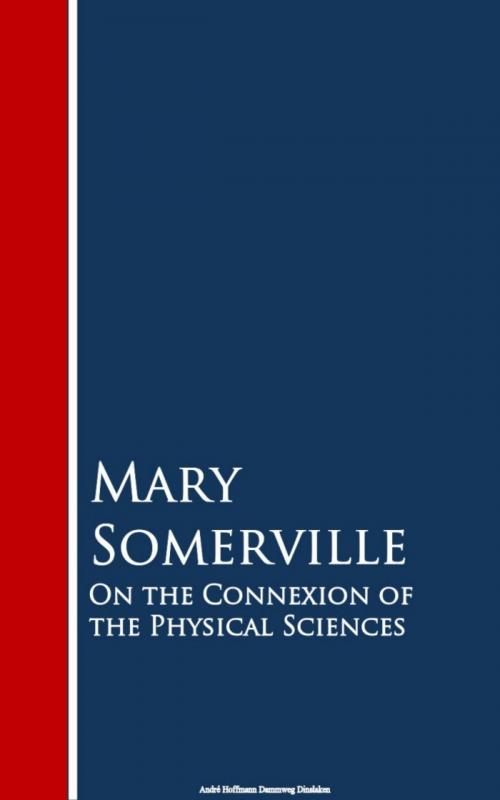On the Connexion of the Physical Sciences
Nonfiction, Science & Nature, Science, Physics, General Physics| Author: | Mary Somerville | ISBN: | 9783736416154 |
| Publisher: | anboco | Publication: | September 27, 2016 |
| Imprint: | Language: | English |
| Author: | Mary Somerville |
| ISBN: | 9783736416154 |
| Publisher: | anboco |
| Publication: | September 27, 2016 |
| Imprint: | |
| Language: | English |
Science, regarded as the pursuit of truth, must ever afford occupation of consummate interest, and subject of elevated meditation. The contemplation of the works of creation elevates the mind to the admiration of whatever is great and noble; accomplishing the object of all study, which, in the eloquent language of Sir James Mackintosh, "is to inspire the love of truth, of wisdom, of beauty—especially of goodness, the highest beauty—and of that supreme and eternal Mind, which contains all truth and wisdom, all beauty and goodness. By the love or delightful contemplation and pursuit of these transcendent aims, for their own sake only, the mind of man is raised from low and perishable objects, and prepared for those high destinies which are appointed for all those who are capable of them." Astronomy affords the most extensive example of the connection of the physical sciences. In it are combined the sciences of number and quantity, of rest and motion. In it we perceive the operation of a force which is mixed up with everything that exists in the heavens or on earth; which pervades every atom, rules the motions of animate and inanimate beings, and is as sensible in the descent of a rain-drop as in the falls of Niagara; in the weight of the air, as in the periods of the moon. Gravitation not only binds satellites to their planet, and planets to the sun, but it connects sun with sun throughout the wide extent of creation, and is the cause of the disturbances, as well as of the order of nature; since every tremor it excites in any one planet 2is immediately transmitted to the farthest limits of the system, in oscillations which correspond in their periods with the cause producing them, like sympathetic notes in music, or vibrations from the deep tones of an organ. The heavens afford the most sublime subject of study which can be derived from science.
Science, regarded as the pursuit of truth, must ever afford occupation of consummate interest, and subject of elevated meditation. The contemplation of the works of creation elevates the mind to the admiration of whatever is great and noble; accomplishing the object of all study, which, in the eloquent language of Sir James Mackintosh, "is to inspire the love of truth, of wisdom, of beauty—especially of goodness, the highest beauty—and of that supreme and eternal Mind, which contains all truth and wisdom, all beauty and goodness. By the love or delightful contemplation and pursuit of these transcendent aims, for their own sake only, the mind of man is raised from low and perishable objects, and prepared for those high destinies which are appointed for all those who are capable of them." Astronomy affords the most extensive example of the connection of the physical sciences. In it are combined the sciences of number and quantity, of rest and motion. In it we perceive the operation of a force which is mixed up with everything that exists in the heavens or on earth; which pervades every atom, rules the motions of animate and inanimate beings, and is as sensible in the descent of a rain-drop as in the falls of Niagara; in the weight of the air, as in the periods of the moon. Gravitation not only binds satellites to their planet, and planets to the sun, but it connects sun with sun throughout the wide extent of creation, and is the cause of the disturbances, as well as of the order of nature; since every tremor it excites in any one planet 2is immediately transmitted to the farthest limits of the system, in oscillations which correspond in their periods with the cause producing them, like sympathetic notes in music, or vibrations from the deep tones of an organ. The heavens afford the most sublime subject of study which can be derived from science.















